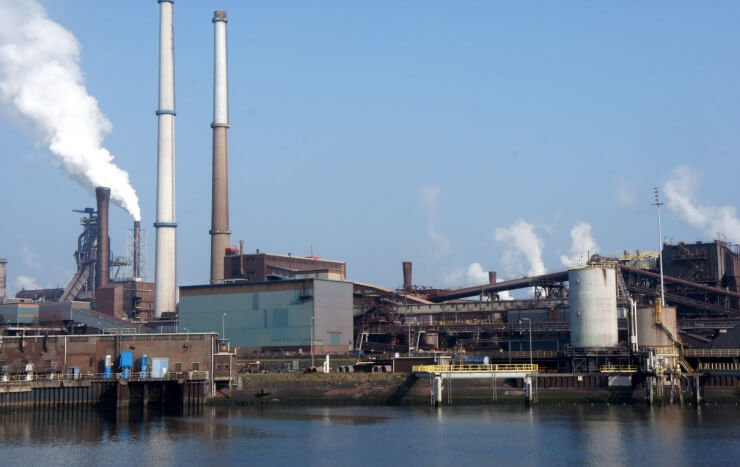At the end of March 2023, Tata Steel's BF6 (blast furnace) was shut down for maintenance work. However, restarting was postponed several times due to “technical problems.”
“The relining of blast furnace No. 6 is a large project, and it depends from a number of third-party dependencies in terms of services and equipment,” a Tata Steel spokesperson said on October 23. “As a result of certain delays and delivery issues from third parties, we have had to make changes to the project schedule.”
However, the furnace has now finally been lit. “A few days ago,” a spokesperson said on Jan. 31, “we began the process of launching BF6. Step by step we are working towards a full ramp-up of hot iron production.”
The IJmuiden steelworks can produce 6 million tons of iron per year from two blast furnaces. Blast Furnace 6 has a capacity of 2.5 million tonnes per annum of this total.
According to Fastmarkets, Tata Steel IJmuiden has a processing capacity of 7.5 million tonnes per annum of crude steel. The company produces hot-rolled, cold-rolled, hot-dip galvanized and painted coils, as well as tinned products.
Market Concerns
Market sources were concerned that if new steelmaking capacity was restored in the first quarter of 2024, it could hamper the fragile uptrend in the EU flat steel market.
European flat steel prices rose in January, mainly due to tighter supply resulting from production cuts and some curbing of replenishment activities, although end-user demand remained weak.
p>“The sharp rise in prices in HRC is entirely due to supply,” said a source in Northern Europe.
Fastmarkets calculated daily hot-rolled steel index for domestic market with a warehouse in Northern Europeat 760.63 euros (824.13 US dollars) per tonne on January 31, which is 3.75 euros higher than 756.88 euros per tonne on January 30.
The index was also up €13.96/tonne week-on-week and €65.13/tonne month-on-month.
Earlier this month Salzgitter restarted its BF “A” at the Flachstahl plant in Germany after a four-month shutdown .




